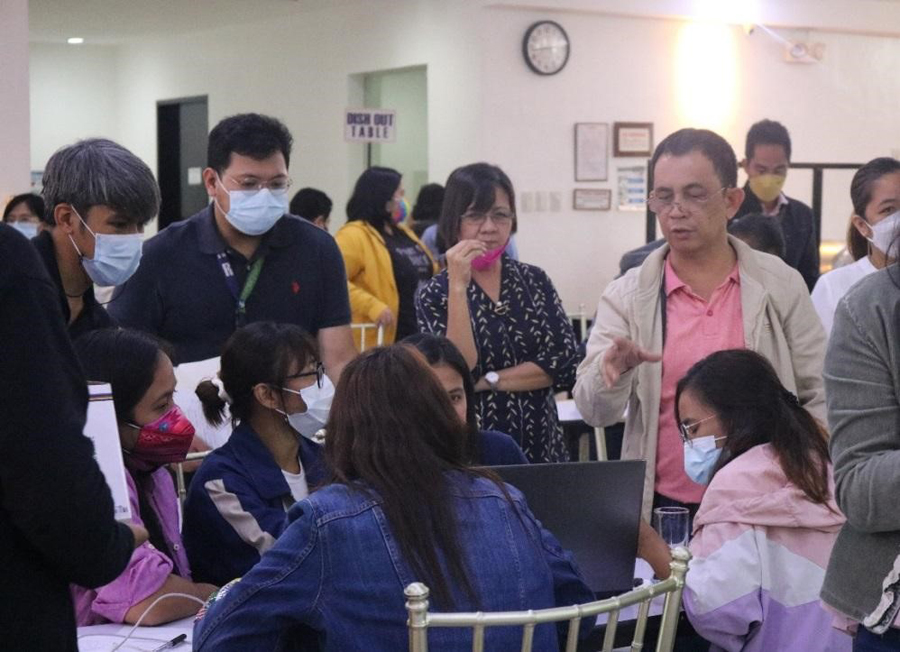
A workshop on the implementation of Environment and Natural Resources (ENR) Laws, hotspot identification, and strategies to address threats within the forest land and protected was administered by the DENR CALABARZON Region IV-A, with the participation of the Environmental Law Enforcement and Protection Service (ELEPS), and personnel assigned in Patrol Sectors, Protected Areas, and Forest Product Monitoring Stations of Rizal Provincial Environment and Natural Resources Office (PENRO).
Relevant topics such as patrolling, apprehensions, legal and law enforcement due process, are some of the highlights of the training with the goal to capacitate the enforcers and field officers for proper enforcement of the ENR Laws, hotspots identification, and formulation of strategies against issues and threats.
During the opening remarks, the PENR Officer, Ramil R. Limpiada, emphasized that Rizal was selected as a pilot province for the workshop due to the existence of dams, resorts, and quarries, migrants and indigenous people, and unharmonized laws, orders, proclamations, and decrees especially within the Protected Areas, namely, the Upper Marikina River Basin and Protected Landscape (UMRBPL), Kaliwa Watershed Forest Reserve (KWFR), Pamitinan Protected Landscape (PPL), and Hinulugang Taktak Protected Landscape (HTPL).
The inspirational message of the Regional Executive Director Nilo B. Tamoria stated that “there is the need and importance of training to know how to resolve problems during the conduct of field work” and “the purpose of the work should be solely focused on how each can contribute to the protection of the environment”.
Environmental Laws, Presidential Decrees, and Administrative Orders were discussed during the event, of which is the most notable is the National Integrated Protected Areas System (NIPAS) Act of 1992, as amended by RA 11038, or the Expanded National Integrated Protected Areas System (E-NIPAS) Act of 2018, due to timely and relevant issues associated within the Protected Areas of Rizal. With the help of the DENR CALABARZON Chief of the Legal Division, Atty. Dominic Bermudez, and its staff, Atty. Aries Matibag and Atty. Marianito L. Dio, Jr., the said act was thoroughly explained.
With regards to the E-NIPAS Act, the rules for the occupation of public land within the Protected Area were discussed, and three sections of the said act were mentioned – Section 22, Section 23, and Section 25. The Section 22 of the said act detailed that LGUs, Municipalities with townships and town centers, and communities with existing rights shall be protected and respected. However, the Comprehensive Land Use Plan (CLUP) and barangay development plans shall give due consideration to the intended use for biodiversity conservation and objectives of the Protected Area. In Section 23, the tenured migrants and other protected area occupants shall be eligible to become stewards of portions of lands within multiple-use zones. Through just and humane means, they will be transferred from Strict Protection Zone (SPZ) to Multiple Use Zone (MUZ) or Buffer Zone (BZ). The rights of the tenured migrants may be transferred only to the spouse or one of their direct descendants listed at the time of the survey. As such, unqualified Tenured Migrants shall be resettled outside the Protected Area.
For Section 25 of the E-NIPAS Act, only the Special Use Agreement in Protected Areas (SAPA) may be allowed within the protected areas, except in Strict Protection Zones and Strict Nature Reserves. A Protected Area Management Board (PAMB) Clearance shall be required for all development projects and activities whether proposed by the government or private sector as stated in Rule 12.1 of DENR Administrative Order 2019-05.
The PAMB may also recommend the issuance of a tenurial instrument subject to compliance to Environmental Compliance Certificate (ECC) and payment of corresponding user fee.
The event officially concluded with the closing remarks of For. Alfredo R. Palencia, Assistant Regional Director (ARD) for Technical Services, in which he stated how “today’s problems are more serious, concerning, and overwhelming” but the conducted workshop will “surely equip the participants with knowledge on how to enforce the law” under the guidance of due process.
Also present are the ARD for Special Concerns, Elmer C. Bascos, Division Chiefs of DENR CALABARZON Region IV-A, Chief TSD of PENRO Rizal, For. Ernesto M. Diso Jr., and representatives from Mining and Geosciences Bureau (MGB) and Environmental Management Bureau (EMB).
- Details
- Parent Category: News & Events
- Category: Photo Releases
- Published: 11 March 2022


